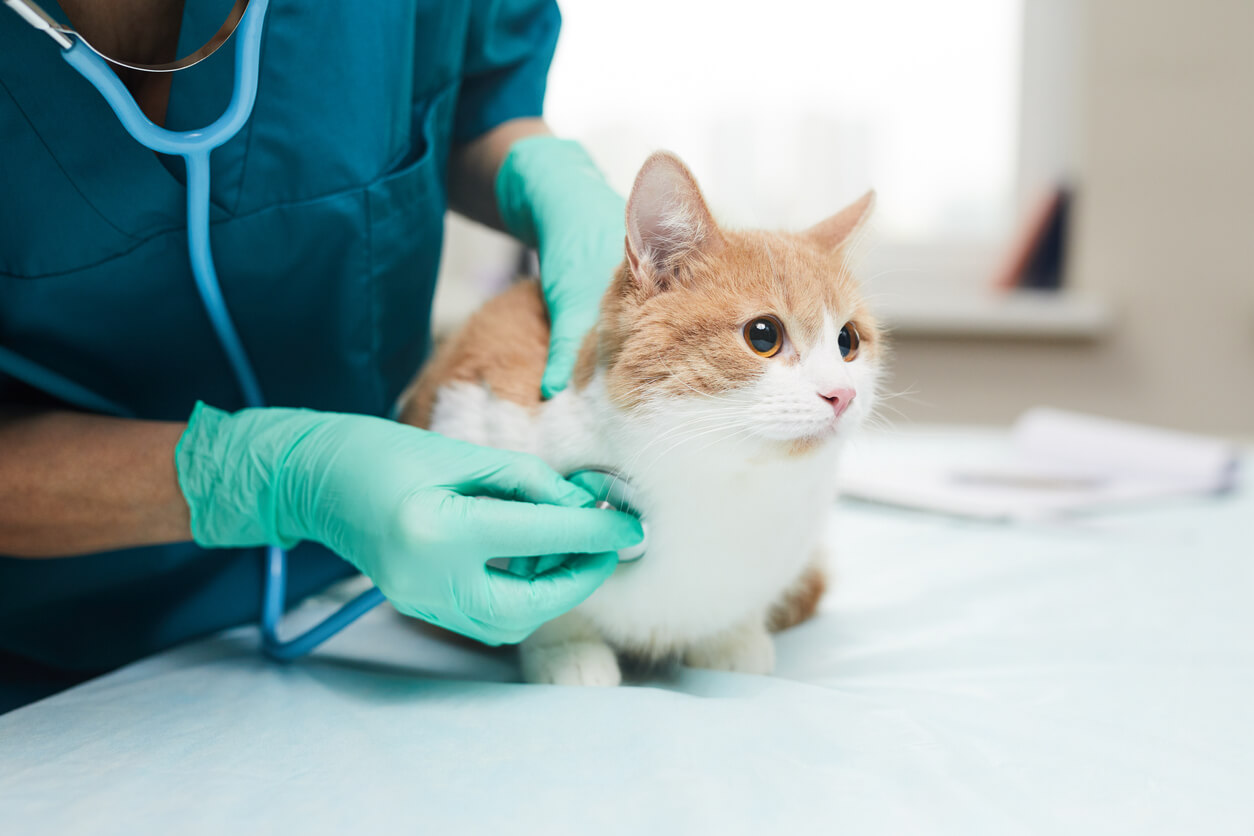Vet Enterprise: Offering Comprehensive Solutions for Your Pet's Health and Safety
Vet Enterprise: Offering Comprehensive Solutions for Your Pet's Health and Safety
Blog Article
Vaccination Guidelines From Your Trusted Veterinarian
Vaccination guidelines offered by your trusted veterinarian play a critical function in safeguarding your animal's health and wellness and well-being. Additionally, addressing typical misconceptions surrounding vaccinations can additionally boost pet owners' confidence in these precautionary actions.

Relevance of Inoculations
Vaccinations play a crucial duty in safeguarding family pets against a variety of avoidable diseases. By promoting the body immune system to identify and fight details microorganisms, injections dramatically lower the occurrence of contagious diseases that can influence a pet's health and long life. Not only do inoculations safeguard specific animals, but they likewise add to herd resistance, thereby lowering the overall occurrence of conditions in the pet population.
Prompt inoculations aid to alleviate the spread of conditions such as rabies, parvovirus, and distemper, which can have extreme consequences for both human beings and animals. Inoculations are frequently a requirement for boarding facilities, brushing solutions, and pet parks, making them necessary for those who wish to mingle their pets.

Core Vaccinations for Animals
While the details vaccination demands of animals can differ based upon specific factors, core vaccines are widely recommended to safeguard against one of the most typical and major conditions (Veterinarian Enterprise). Core injections are those considered necessary for all animals, despite their way of living or geographic area, as they guard versus potentially deadly and extremely transmittable health problems
For dogs, the core vaccinations include those for canine distemper, parvovirus, adenovirus (liver disease), and rabies. Adenovirus can result in liver condition, while rabies is a zoonotic illness that poses a risk to both human beings and pets.
In cats, core vaccinations include feline panleukopenia, feline calicivirus, feline herpesvirus (rhinotracheitis), and rabies. Feline panleukopenia is a very infectious viral illness that affects the immune system and intestinal tracts. Calicivirus and herpesvirus are significant contributors to top respiratory system infections in felines, while rabies remains a vital problem for public health and wellness.
Consult with your veterinarian to ensure your pets receive their core inoculations on schedule.
Non-Core Vaccines Explained
Non-core vaccines are tailored to attend to specific risks connected with a pet dog's way of life, environment, and exposure to specific illness. Unlike core vaccines, which are universally advised for all pets, non-core injections are considered based on private conditions. These injections are visit here specifically important for animals that may experience unique virus due to their geographical location, travel routines, or activities.
Instances of non-core vaccines consist of those for Bordetella bronchiseptica, which is connected to kennel cough, and Lyme illness, brought on by ticks. Pet dogs that often connect with various other animals, such as those in boarding centers, pet dog parks, or brushing settings, may take advantage of Bordetella vaccination. If you live in a location where Lyme illness is common, immunizing versus this disease can be a prudent choice for outdoor-loving canines.
Various other non-core injections may include those for leptospirosis, canine flu, and feline leukemia, relying on the certain risk elements existing. It is vital to have a thorough discussion with your veterinarian about your pet's way of living and the potential requirement for these vaccinations, making certain a tailored inoculation approach that best protects your fuzzy good friend.
Vaccination Schedule Introduction
:max_bytes(150000):strip_icc()/veterinarian-526081-final-d02935e28abf4e4a9b4dc25b5d0f2cc8.png)
As pet dogs develop, it is essential to abide by the suggested booster vaccinations. Pet Health Checkup. For grown-up pets, core vaccinations are typically offered every one to three years, relying on the particular injection and neighborhood policies. Non-core injections may be advised based on lifestyle aspects and local illness frequency, requiring a tailored approach
Regular veterinary check-ups are important for upgrading inoculation schedules. Your veterinarian can supply guidance on the most ideal booster shots for your family pet, considering age, health condition, and ecological dangers. By staying aggressive and informed, family pet proprietors can ensure their furry companions receive effective and timely inoculations, thereby protecting their wellness and health throughout their lives.
Usual Myths Regarding Injections
False impressions about family pet vaccinations can lead to complication and reluctance among family pet owners regarding the immunization process. One common myth is that injections are unneeded for indoor family pets. While it holds true that interior pet dogs deal with lower risks, they are not totally unsusceptible to conditions, as virus can be introduced with different ways, including human clothing and other animals.
One more mistaken belief is that injections can trigger Recommended Reading the illness they aim to avoid. In truth, the majority of vaccinations contain inactivated or attenuated pathogens, which can not trigger condition in healthy pets. Some pet proprietors also believe that their animals ought to not be vaccinated if they are already healthy; however, vaccinations are a positive measure that helps avoid the start of ailment.
Additionally, lots of pet dog owners are afraid that vaccinations will lead to long-term wellness difficulties. The advantages of vaccination-- shielding pets from possibly life-threatening illness-- far outweigh the risks.
Final Thought
In summary, adherence to vaccination guidelines is important for making certain the health and longevity of pets. Resolving typical myths bordering vaccinations additionally enhances the relevance of informed decision-making in family pet treatment.
Not just do vaccinations important source safeguard individual pets, yet they additionally contribute to herd resistance, therefore decreasing the overall frequency of diseases in the pet dog populace.
Misunderstandings regarding animal vaccinations can lead to confusion and unwillingness among family pet proprietors concerning the immunization procedure. While it's true that indoor pet dogs encounter lower risks, they are not entirely immune to diseases, as virus can be introduced with various ways, including human garments and other animals.
Some animal proprietors also believe that their pet dogs ought to not be immunized if they are already healthy; however, vaccinations are an aggressive procedure that assists prevent the beginning of illness.
The advantages of inoculation-- protecting animals from potentially lethal illness-- much outweigh the risks.
Report this page